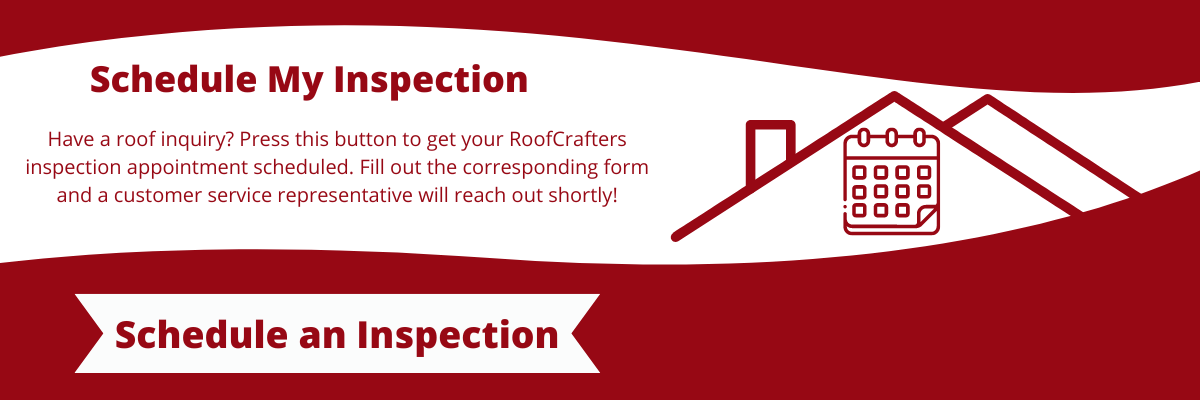Aluminum Roofing Pros & Cons
August , 2023 | 6 min. read
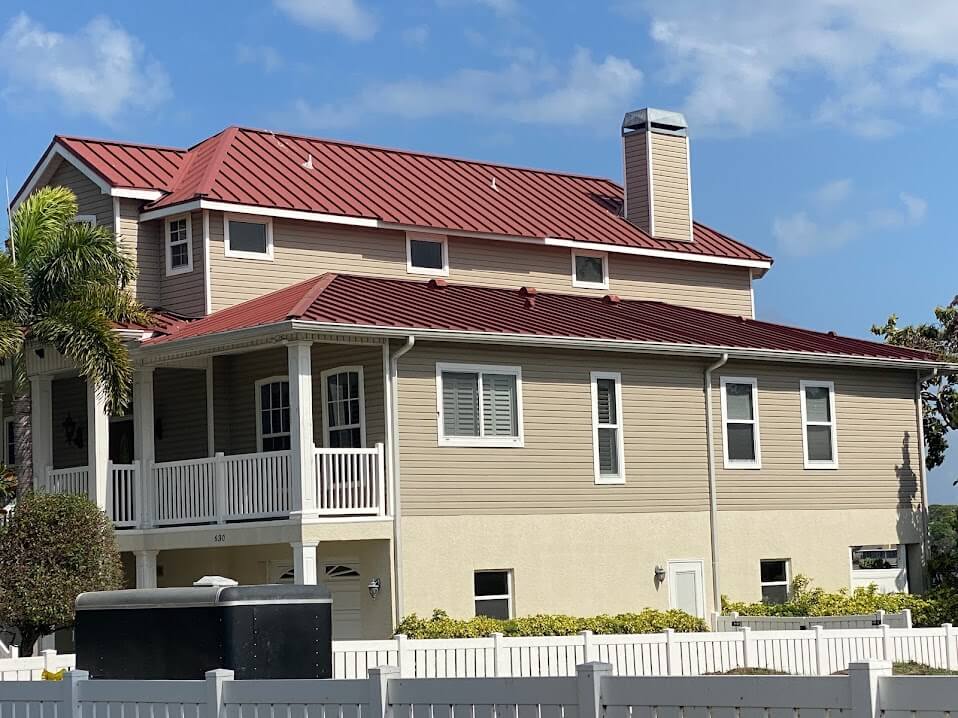
Aluminum roofing has gained popularity as a versatile and lightweight option for a variety of home and business owners. This roofing material offers a range of benefits that appeal to property owners seeking durability, energy efficiency, and corrosion resistance.
However, like any roofing material, aluminum also comes with its own set of drawbacks that should be carefully considered. RoofCrafters has been working with aluminum roofing systems since we started our business more than 30 years ago, and while it is one of the most popular metal roofing choices, we do think there are some things you ought to consider.
That being said, if you’re reading this article, you may be considering aluminum for your next roofing system, and you’re curious about the pros and cons. Well, dear reader, you’re in luck! In just a few short moments, you’ll learn what aluminum roofing is, its advantages and drawbacks, and if an aluminum roof is right for you. Let’s get started!
What is Aluminum Roofing?
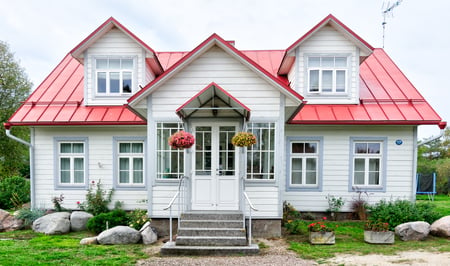
Aluminum roofing refers to roofing materials that are made primarily from aluminum, a lightweight and corrosion-resistant metal. Aluminum roofing is known for its durability, low maintenance requirements, and suitability for various types of buildings and environments. Aluminum roofing materials can come in different forms, such as sheets, shingles, tiles, or panels, and they can be used for both residential and commercial structures. Due to its lightweight nature, aluminum roofing is often chosen for structures where weight is a concern or where the existing structure may not support heavier roofing materials.
Aluminum roofing is best suited for structures such as:
-
Buildings Near the Coast: This category includes hotels, resorts, condominiums, homes, boathouses, and more.
-
Business Establishments: This group covers hospitals, schools, stores, government buildings, and similar structures.
-
Housing Projects: This category involves single-family homes, multi-family housing like condos, and more.
-
Various Architectural Structures: This encompasses commercial, governmental, and residential buildings, among others.
-
Structural and Industrial Uses: This refers to structures like warehouses, factories, and similar industrial applications.
Pros of Aluminum Metal Roofing
Natural Protection & No Red Rust: Aluminum has a distinctive way of dealing with the small amount of corrosion it encounters. Unlike steel products that develop red rust, aluminum creates a hard oxide film when it corrodes, safeguarding the metal. This characteristic helps maintain the material's integrity and prolong its lifespan even in corrosive settings such as coastlines. Moreover, the oxide film forms rapidly, eliminating concerns about edge creep or the development of red rust, which can occur with steel materials.
Ideal for Coastal Settings: One of the standout advantages of aluminum is its suitability for use in coastal environments. As previously mentioned, aluminum exhibits superior corrosion resistance compared to steel, particularly in challenging coastal conditions where saltwater can cause considerable damage to roofing systems.
The process of oxidation that occurs during aluminum's corrosion strengthens the material and extends the lifespan of the roofing system in coastal areas. This quality makes aluminum the preferred choice for metal roofing in regions like the Caribbean Islands, the Atlantic coastline, the Gulf Coast, and the Pacific Coast. Notably, even when used in coastal regions, aluminum roofing systems still come with a PVDF paint warranty.
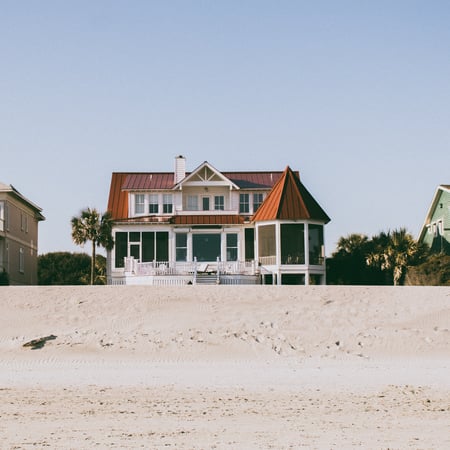
Guaranteed Quality: Aluminum metal roofs offer a range of warranty choices, encompassing paint, substrate, and weathertight warranties. These warranties serve to safeguard your investment and assure you that your roof or wall system will endure over time. Even for aluminum products used in coastal regions, paint warranties are available. As an illustration, Sheffield Metals provides a 25-year PVDF paint warranty for coastal properties and a 20-year PVDF paint warranty for Caribbean properties. If your property isn't situated in a coastal environment, our conventional 40-year PVDF warranty applies to aluminum roofs as well.
Easy to Handle: As previously mentioned, metal roofing stands out as a relatively lightweight option, alleviating extra strain on a building's framework. Among metal materials, aluminum takes the lead in terms of lightweight properties. This characteristic simplifies transportation, handling, and the process of installing panels for contractors. Additionally, when panels are formed on-site using a portable roll-forming machine, a lighter coil makes transportation easier and places less strain on the rollformer.
Cons of Aluminum Metal Roofing
Needs Adequate Space for Temperature Changes: Aluminum expands and contracts about twice as much as a steel roof does due to temperature changes. This is an aspect that contractors must take into consideration during installation. Sufficient room should be allowed for the thermal movement of the panels.
This becomes particularly crucial when utilizing a mechanically seamed profile for panels exceeding 15-20 feet in length. It's advisable to incorporate expansion clips as per relevant engineering recommendations for longer panels. Constrained expansion and contraction in an aluminum roof can result in issues like "oil canning" (wavy appearance), heightened noise levels, and greater maintenance requirements for exposed fasteners.
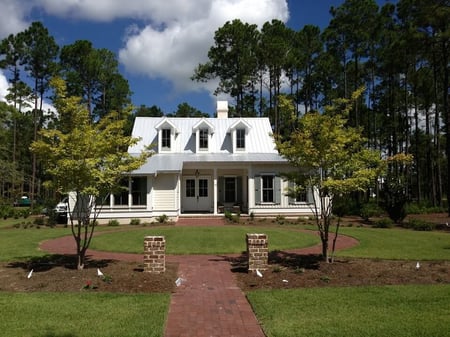
Original Appearance: It's generally advised not to opt for a bare aluminum product with its natural silver-gray hue. Over time, as the metal ages, undergoes weathering, and oxidizes (resulting in white rust), it loses its initial factory-finished color and can often appear faded and uneven. To address this concern, the most effective solution is to invest in roofing coils or panels that are already painted. This choice ensures a cleaner aging process as the paint conceals any alterations in the metal's color.
More Prone to Bending and Denting: This aspect of aluminum serves as both an advantage and a drawback. On one hand, aluminum is more pliable compared to steel, allowing for easy bending and fabrication without the risk of fractures. This quality proves particularly advantageous during processes like roll forming and panel fabrication. However, due to aluminum's slightly softer and lighter nature, it is susceptible to dents more readily than other metals, both during and after installation. Other metal materials will be more structurally sound if you're concerned about bending or denting.
Contractors need to exercise added caution when handling, removing protective coverings, and installing aluminum panels. Mishandling can lead to imperfections and visible waviness known as "oil canning" in the finished installed panels. Moreover, if a structure is located near trees or objects that could potentially fall onto the roof, an alternative metal material might be more suitable to maintain the roof's appearance.
Is Aluminum Roofing Right for Me?
As you now know, aluminum roofing presents a compelling array of advantages and disadvantages that warrant thorough evaluation. Its lightweight nature, corrosion resistance, and energy efficiency make it an attractive choice for various projects. However, it's crucial to acknowledge its potential downsides, such as noise and dent susceptibility. Furthermore, its malleability makes aluminum roofing relatively easy to work with during installation, enabling contractors to fabricate and install it smoothly.
However, this same flexibility can also be a potential drawback, as aluminum roofing is more prone to denting from impacts compared to heavier materials like steel. By thoughtfully weighing these pros and cons in light of your specific project requirements, budget constraints, and environmental factors, you can make an informed decision regarding the suitability of aluminum roofing for your building.
Ultimately, understanding the benefits and limitations of aluminum roofing empowers you to choose a roofing solution that aligns with your priorities for longevity, aesthetic appeal, and overall performance. If you’re interested in learning if an aluminum roofing system is the right fit for your home or business, be sure to hit the “Schedule an Inspection” button down below, and one of our experts will provide you with their professional opinion, and discuss more on your options!
My name is Cassie, and I’m the Content Manager here at RoofCrafters. I was born and raised in Chicago, Illinois, and made my way out to Florida post-college graduation. I’m incredibly passionate about writing and creating valuable content that helps others with the collaboration of my marketing team. When I’m not working, I enjoy shopping (a little too much), spending time at the beach, and reading!



